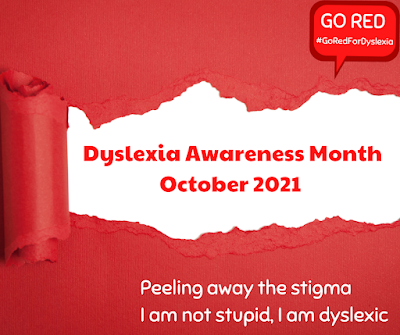Let's Talk: Dyslexia Awareness
Dyslexia is not a disease - but rather a learning disability
In 1881 German physician Oswald Berkhan, was presented with a case of a boy with general intellect and physical capabilities, yet unable to learn to read and write. This case was the first identification of what ophthalmologist Rudolph Berkhan 6 years later officially termed 'dyslexia'.
Defined as a specific learning disability that is neurological in origin, dyslexia affects about 1 in 5 students and is characterised by difficulties with accurate and/fluent word recognition coupled with poor spelling and decoding abilities. Dyslexia also results in problems with reading comprehension and reduced reading experience that can impede the growth of vocabulary and background knowledge. However, despite these and more underlining challenges, dyslexia does not affect general intelligence and occurs across the range of intellectual abilities. Additionally, it is important to note that Dyslexia is highly genetic and is best to be viewed as a continuum.
Nevertheless, more than 40 million people in the United States have Dyslexia, but only about 2 million have been diagnosed. While there isn't any specific statistics related to the Caribbean, or Trinidad and Tobago, according to The Dyslexic Association of Trinidad and Tobago, "extrapolating from internationally accepted figures of 10-20% the number of dyslexics in this country is likely to be over 120,000". Hence there is a growing need to educate the public while rising awareness on the realities of dyslexia.
The International Dyslexia Association declared October as National Dyslexia Awareness Month in 2002, and has since been dedicated to helping the world understand dyslexia. This year, A World of Books would be joining the movement as we launch our "I'm not stupid, I'm dyslexic" online campaign, alongside the global "#GoRedForDyslexia" campaign. For too long, slow readers, have been labelled stupid and tossed to the back of the class with red 'Xs' all over their work, as they were left undiagnosed. Additionally, for too long have these students endured the limited education of those charged with educating them, and left to navigate a system not designed to accommodate their special needs. It is here we at A World of Books wish to help by offering both the guidance to teachers, support to parents and a voice to students.
A a dyslexic tutor we know all too well the cries of our voiceless, and this month we stand and say: They're not stupid, They are dyslexics.
Look out for more details and Information on our social media pages, and #GoRedForDyslexia
Defined as a specific learning disability that is neurological in origin, dyslexia affects about 1 in 5 students and is characterised by difficulties with accurate and/fluent word recognition coupled with poor spelling and decoding abilities. Dyslexia also results in problems with reading comprehension and reduced reading experience that can impede the growth of vocabulary and background knowledge. However, despite these and more underlining challenges, dyslexia does not affect general intelligence and occurs across the range of intellectual abilities. Additionally, it is important to note that Dyslexia is highly genetic and is best to be viewed as a continuum.
Nevertheless, more than 40 million people in the United States have Dyslexia, but only about 2 million have been diagnosed. While there isn't any specific statistics related to the Caribbean, or Trinidad and Tobago, according to The Dyslexic Association of Trinidad and Tobago, "extrapolating from internationally accepted figures of 10-20% the number of dyslexics in this country is likely to be over 120,000". Hence there is a growing need to educate the public while rising awareness on the realities of dyslexia.
The International Dyslexia Association declared October as National Dyslexia Awareness Month in 2002, and has since been dedicated to helping the world understand dyslexia. This year, A World of Books would be joining the movement as we launch our "I'm not stupid, I'm dyslexic" online campaign, alongside the global "#GoRedForDyslexia" campaign. For too long, slow readers, have been labelled stupid and tossed to the back of the class with red 'Xs' all over their work, as they were left undiagnosed. Additionally, for too long have these students endured the limited education of those charged with educating them, and left to navigate a system not designed to accommodate their special needs. It is here we at A World of Books wish to help by offering both the guidance to teachers, support to parents and a voice to students.
A a dyslexic tutor we know all too well the cries of our voiceless, and this month we stand and say: They're not stupid, They are dyslexics.
Look out for more details and Information on our social media pages, and #GoRedForDyslexia




Comments
Post a Comment